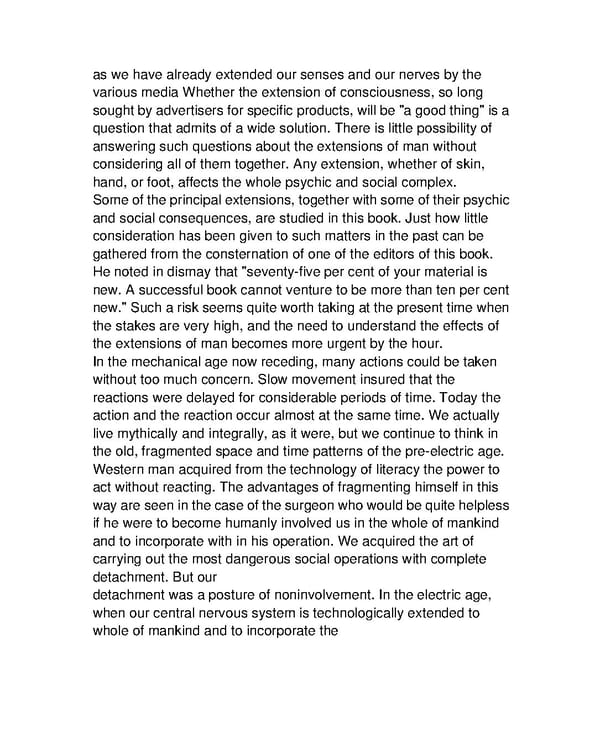as we have already extended our senses and our nerves by the various media Whether the extension of consciousness, so long sought by advertisers for specific products, will be "a good thing" is a question that admits of a wide solution. There is little possibility of answering such questions about the extensions of man without considering all of them together. Any extension, whether of skin, hand, or foot, affects the whole psychic and social complex. Some of the principal extensions, together with some of their psychic and social consequences, are studied in this book. Just how little consideration has been given to such matters in the past can be gathered from the consternation of one of the editors of this book. He noted in dismay that "seventy-five per cent of your material is new. A successful book cannot venture to be more than ten per cent new." Such a risk seems quite worth taking at the present time when the stakes are very high, and the need to understand the effects of the extensions of man becomes more urgent by the hour. In the mechanical age now receding, many actions could be taken without too much concern. Slow movement insured that the reactions were delayed for considerable periods of time. Today the action and the reaction occur almost at the same time. We actually live mythically and integrally, as it were, but we continue to think in the old, fragmented space and time patterns of the pre-electric age. Western man acquired from the technology of literacy the power to act without reacting. The advantages of fragmenting himself in this way are seen in the case of the surgeon who would be quite helpless if he were to become humanly involved us in the whole of mankind and to incorporate with in his operation. We acquired the art of carrying out the most dangerous social operations with complete detachment. But our detachment was a posture of noninvolvement. In the electric age, when our central nervous system is technologically extended to whole of mankind and to incorporate the
 Understanding Media by Marshall McLuhan Page 5 Page 7
Understanding Media by Marshall McLuhan Page 5 Page 7